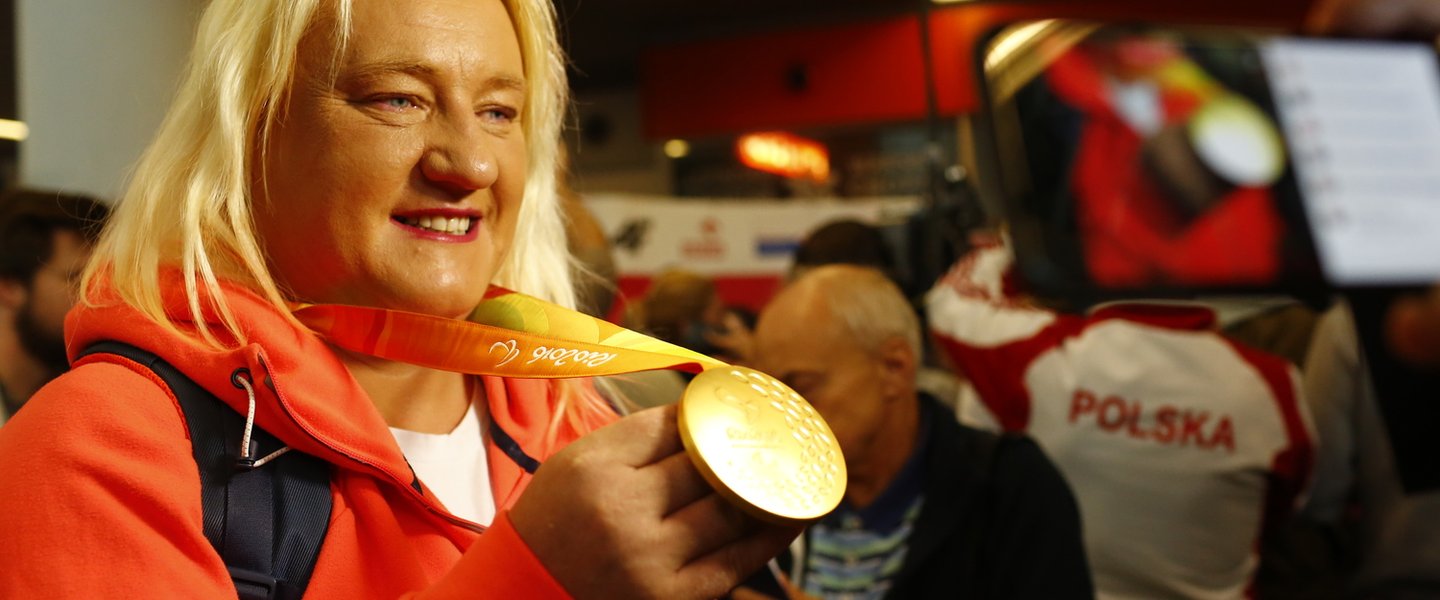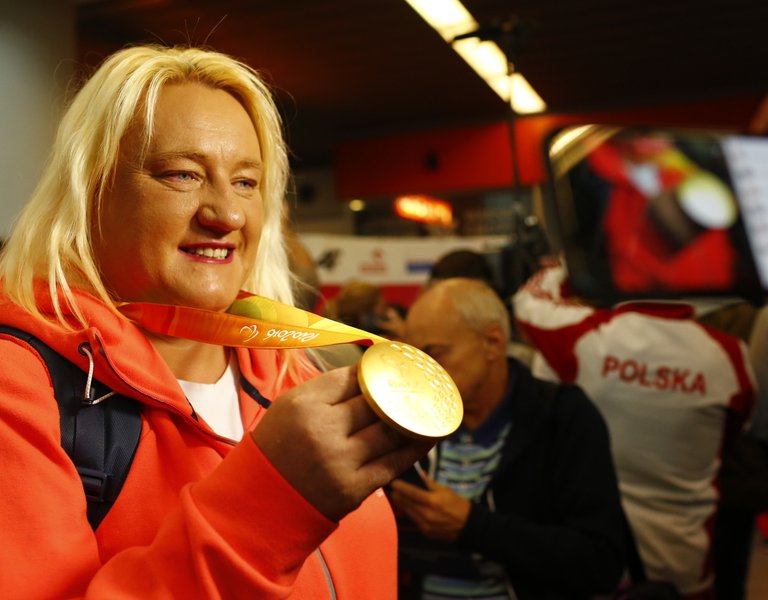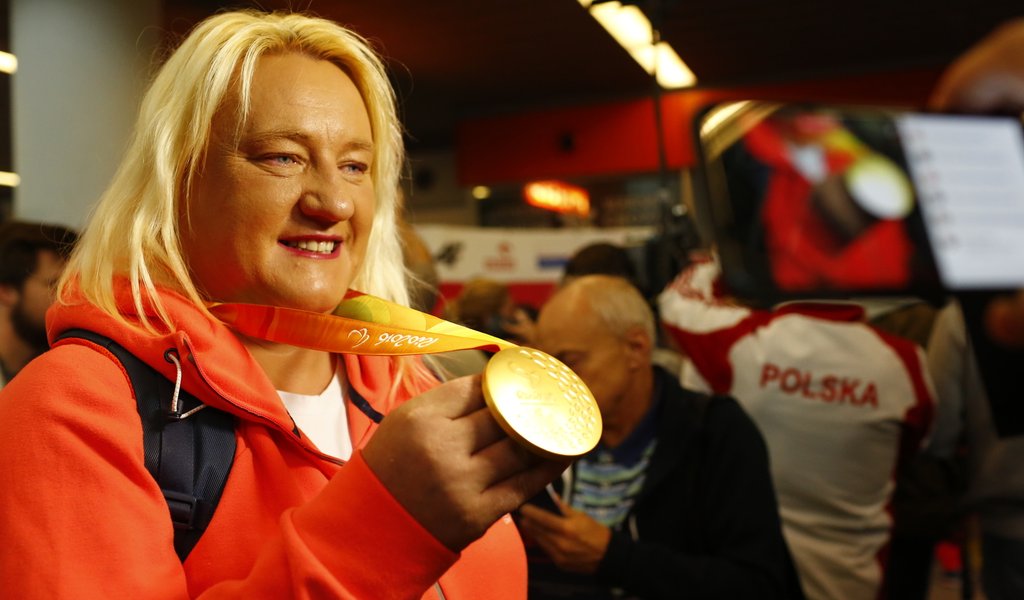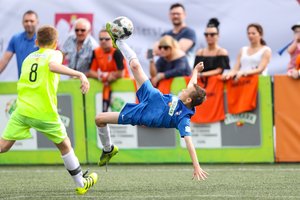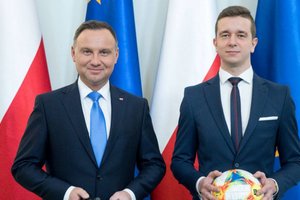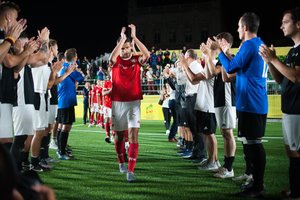How two Polish athletes put others before self
“If you have enough to share, you should do so because it brings joy and for some it can even save their life.”
Polish Olympian Piotr Małachowski spoke these words only moments after winning a silver medal at the Rio Olympic Games in 2016, and in doing so set off an international chain of events that would bring lifesaving medical help to a little boy in need.
Małachowski, a discus thrower and two-time Olympic silver medalist, in the press conference following his medal winning competition, announced that he would auction off his newly won Olympic silver medal, with the proceeds going to someone in need.
When Gosia Mertuszka saw this announcement on her television, she immediately wrote to the Polish Olympian on Facebook about her son, three year old Olek, who was suffering from retinoblastoma, a rare cancer of the eye, and required expensive surgery in the United States.
When she asked Piotr Małachowski if he could help, Piotr replied, “How much was needed?”
After Gosia provided the sum, he answered, “We’ll get it done.”
And so began a race against the clock to save Olek’s eyesight that would involve doctors in New York, Małachowski’s Olympic medal, and a philanthropist in Poland who purchased the medal for the amount needed to cover Olek’s medical costs.
This incredible story, which was beautifully documented by ESPN’s Sport Center Featured, shows that one small act of kindess can have a long ranging positive impact and serve as an inspiration for countless individuals.
“My happiness was doubled because I got the medal, and then I was able to help Olek” - Olympian Piotr Malachowski
“I too was once the recipient of someone’s help, and I wanted to repay that debt” confessed Ewa Durska, a Polish Paralympian and three time Paralympic champion in shot put, who also decided to auction her Rio medal away for the benefit of others. “I had planned for a long time, that if I win a medal [in Rio] I would give it away to help others, instead of having it sit around in my closet” explained Durska.
Ewa went on to win gold in Rio, and her generous action helped raise funds for nine year old Wictoria, who was diagnosed with lymphoblastic leukemia and required a bone marrow transplant.
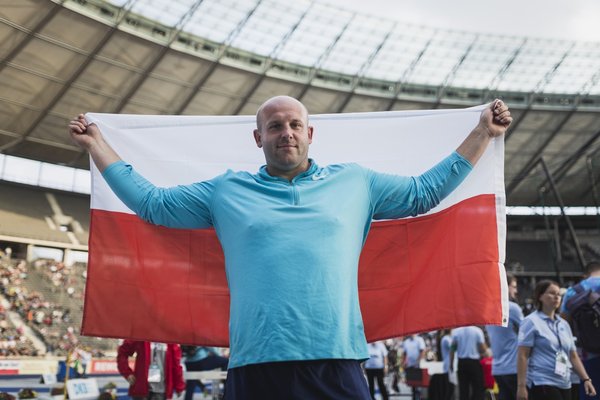 The actions of these two athletes, Piotr Małachowski and Ewa Durska, not only provided acute financial support to the families of two children undergoing critical treatment for serious illnesses, but also serve as a model of sportsmanship and FairPlay for athletes around the world to follow.
The actions of these two athletes, Piotr Małachowski and Ewa Durska, not only provided acute financial support to the families of two children undergoing critical treatment for serious illnesses, but also serve as a model of sportsmanship and FairPlay for athletes around the world to follow.
A few weeks after the conclusion of the 2016 Olympic and Paralympic Games, Dr. Leszek Sibilski, a sociology professor at Montgomery College in Maryland, decided to use Małachowski and Durska as the subject of a classroom project for his students. Through the lens of these athletes and their selfless actions, his class explored themes ranging from culture and history, to sportsmanship, geography and FairPlay.
As an element of this classroom exercise, Dr. Sibilski polled his class of over 80 students about whether they should nominate the two Polish athletes to the International Committee for FairPlay. It was a unanimous decision. Then 19 year old Zoha Tariq, a female student of Pakistani heritage, wrote to the International Fair Play Committee on behalf of her sociology class:
“These hard-earned medals represent the success achieved from years and years of grueling hard work, irrefutable passion and relentless dedication by these athletes. However, when most would hold tight to their victory and even brag about it, these two athletes have shown the utmost respect to their fellow human beings by using their victory to help those in dire need. I feel it our duty to return their kindness by rewarding them for their sacrifices and respecting them for their strong spirits. The stories of these two athletes have inspired the students at our college on a very personal level and we would like to nominate these two remarkable Olympic athletes and fantastic fellow human beings for the Fair Play Awards."
Professor Sibilski, himself a former member of the Polish National Cycling Team, explained, “There was a lot of talk last year about the generosity of these athletes, but no one connected these events with the broader notion of FairPlay until our project.”
“As a former athlete” Sibilski continued, “I realize that FairPlay is not as popular in modern society. Victory is more important than FairPlay, which can lead to disturbing outcomes. In the fever of competition, it is necessary to never forget about FairPlay.”
Few of Dr. Sibilski’s students could have imagined that one year later, Dr. Jeno Kamuti, President of the International Committee for FairPlay, would be writing to inform them that thanks to their nomination, both Ewa Durska and Piotr Małachowski would be recognized with a World FairPlay Diploma for their exceptional behavior in the year 2016.
Pierre de Coubertin, the father of the modern Olympic Games, once said, “The important thing in life is not the triumph, but the fight; the essential thing is not to have won, but to have fought well.”
Coubertin put into words the philosophy that today forms the foundation of the concept of FairPlay. Most often associated with meaningful acts of fairness on the field, the actions of Ewa and Piotr fall into a second, oft overlooked category — FairPlay off the field.
“On the field you have referees, coaches, spectators, cameras. Off the field there are no rules, often no one is watching” explained Sibilski, adding, “therefore it is important to have high ethics and highlight FairPlay off the field, as an inspiration to people all over the world, underscoring that it is important to do the right thing, even when no one is watching.”
And this is exactly what Małachowski and Durska did. They helped those in need, they used their athletic accomplishment to raise awareness for others, and in doing so became a role model for people everywhere.
As the International FairPlay Committee declared, “By auctioning off their hard-earned medals to improve the lives of strangers, Małachowski and Durska demonstrated exemplary compassion and selflessness. These two Olympians brought peace into the lives of these families. They also made an impact on the global community through social media by inspiring those who read about their acts of kindness.”
The two Polish atheletes will be presented with a FairPlay Diploma on November 17, at the World Fair Play Awards gala in Brussels, Belgium among other athletes and individuals who are being recognized for championing the ideals of Coubertin and puting others before self.
“It is surprising that I will be recognized for a regular act” — Ewa Durska
Although Ewa and Piotr no longer possess their Rio medals, they will now have a Fair Play Diploma, a recognition whom some may deem equally or even more valuable.
As the FairPlay Committee President stressed, “Winning a medal at the Olympic or Paralympic Games is very hard to achieve, but being able to lose it for a greater good is much harder.”
Durska and Małachowski are not the only Polish athletes who have in recent years considered FairPlay more important than their medals. Oktawia Nowacka, a 2016 Olympic Bronze Medalist in Pentathlon also auctioned away her medal, as did 2012 Olympic Bronze Medalist in Windsurfing, Zofia Klepacka.
“The ideals of Coubertin are very much alive in Poland, but less so in other countries. I hope our project and the recognition Ewa and Piotr received will inspire educators around the world to promote FairPlay to students and athletes, so that people everywhere will hold themselves to high ethical standards, both on and off the field” concluded Sibilski.
We too, hope that this project is the start of a global snowball effect.
The Embassy of the Republic of Poland in Washington, D.C. wishes to congratulate Ewa Durska and Piotr Małachowski on their recognition and thank them for serving as such inspirational role models. May their actions continue to inspire others. Our thanks also to Dr. Sibilski and his students at Montgomery College, for working to spread the message of FairPlay around the world.
Written by: Matthew Stefanski
21.11.2017
